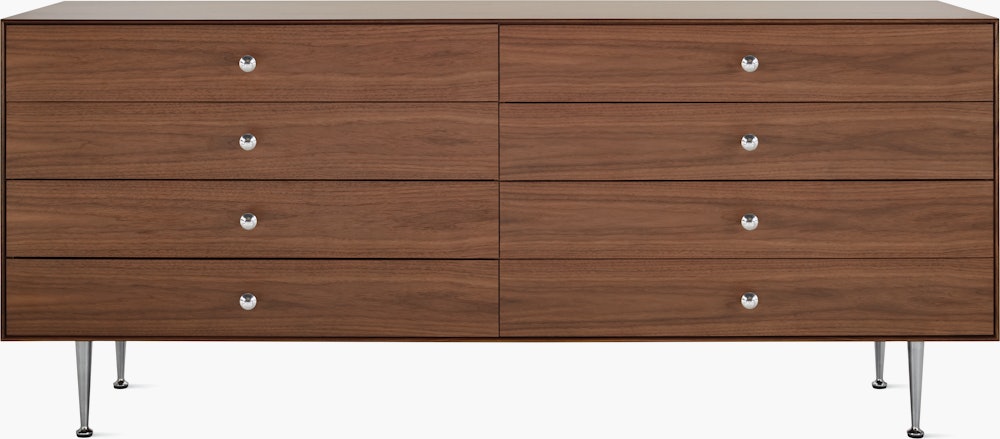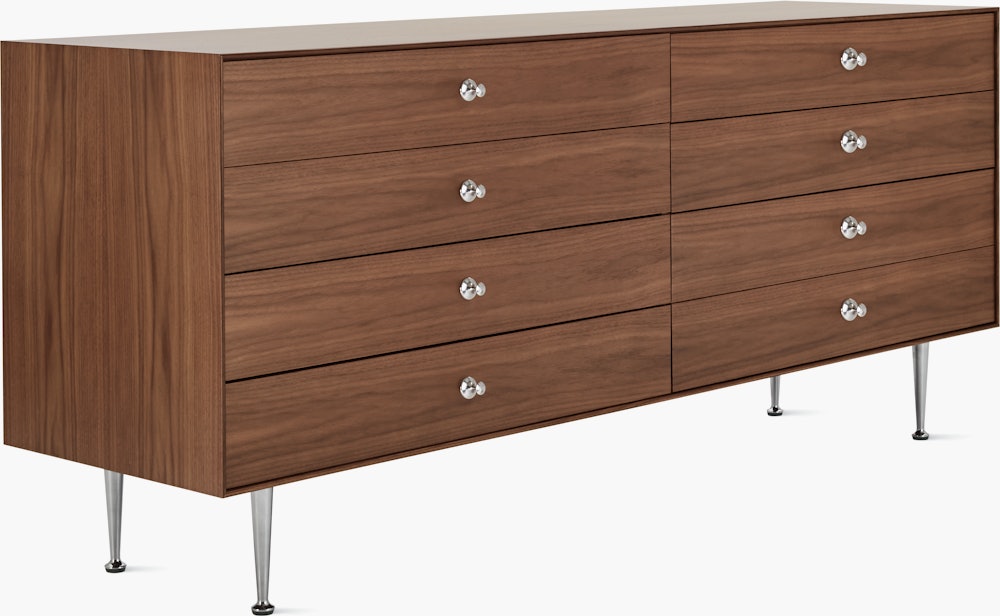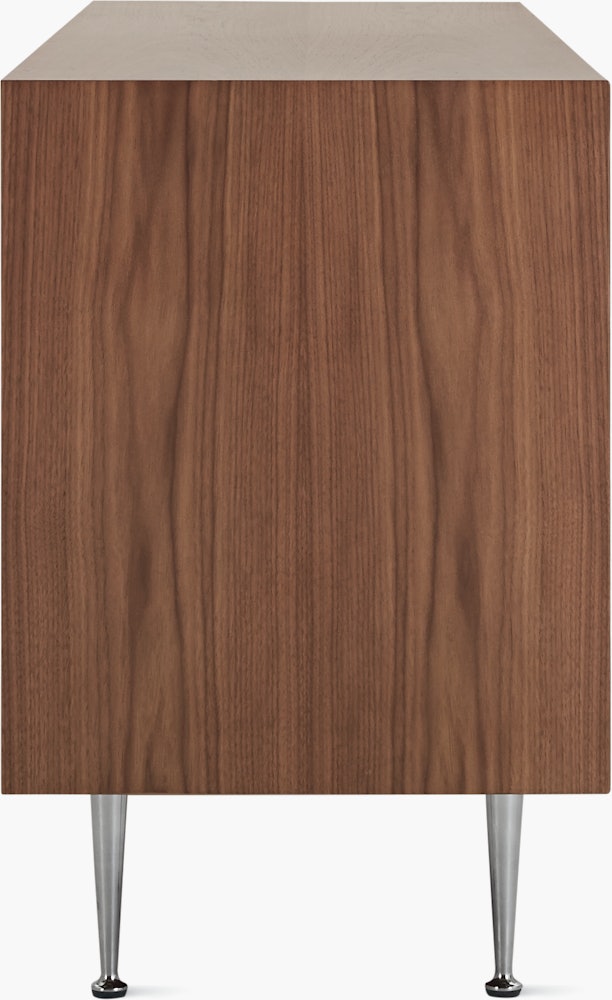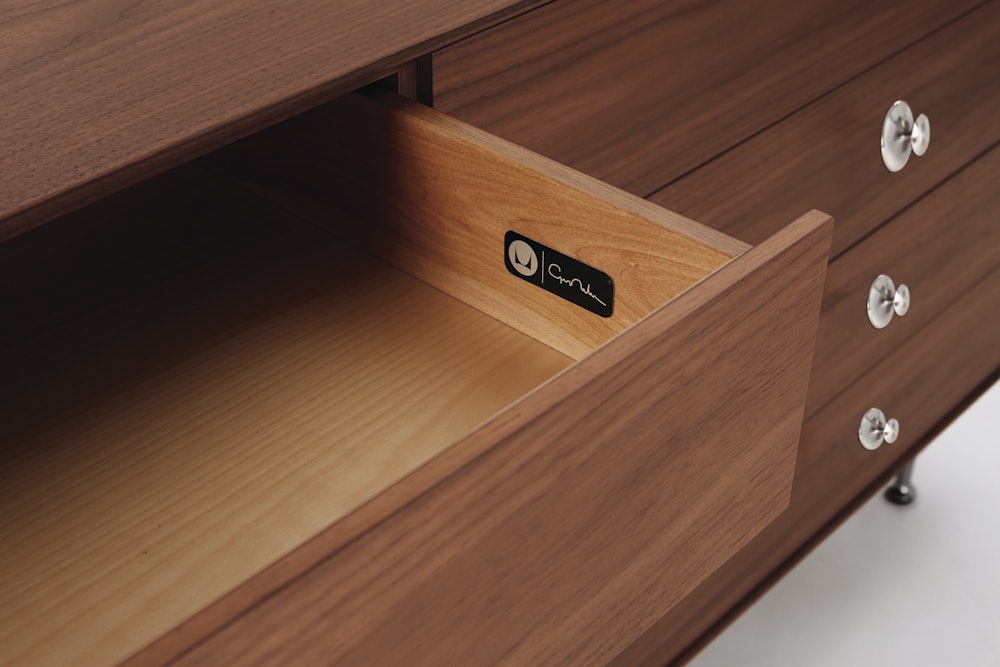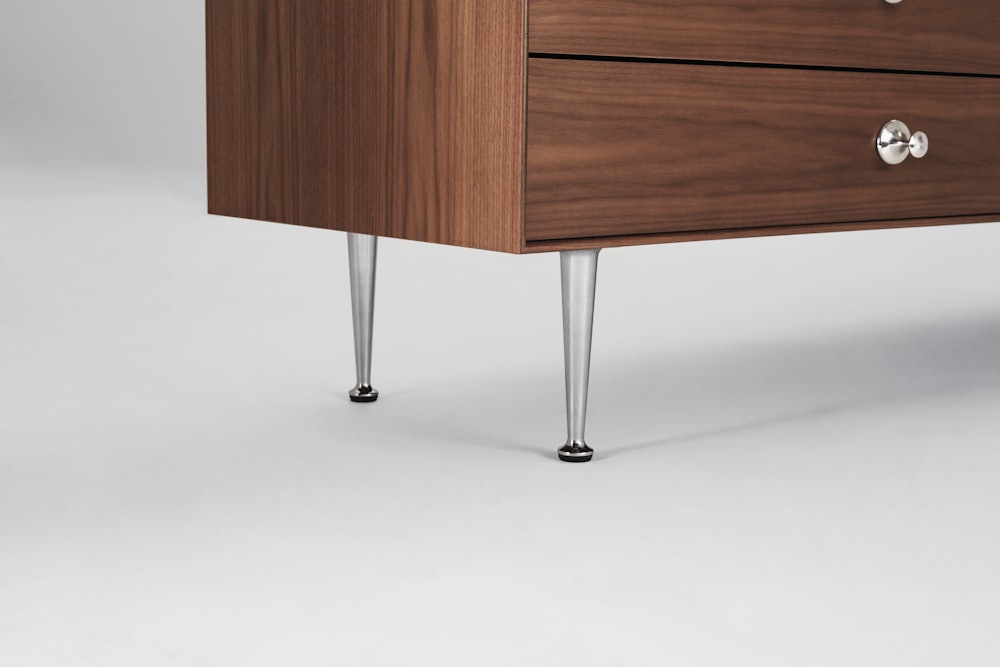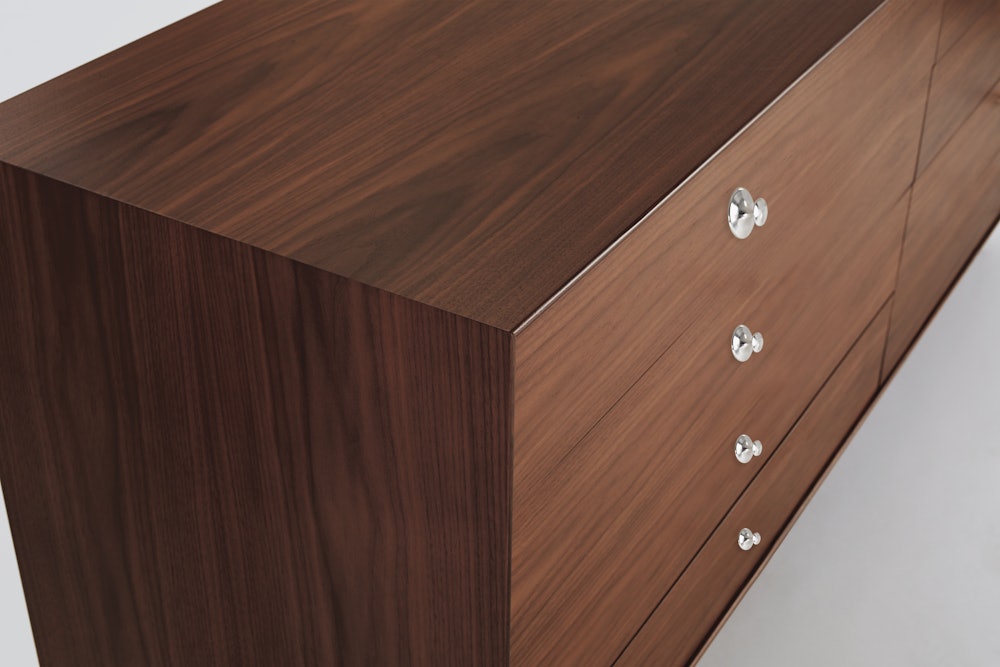Nelson Thin Edge Double Dresser
Nelson Thin Edge Double Dresser
Shipping + Delivery
Easy Returns
Not satisfied? Return items within 30 days. Learn More
Design Concierge
Need help designing your space? Learn more about our complimentary interior design services
Authenticity Guaranteed
This is an original, authenticated product.
Warranty
5-year warranty
Terms and conditions apply. Learn more
Details
- Manufactured with environmentally sustainable veneers and 85% recycled material.
- Named for its especially thin edges.
- Slim aluminum legs raise the volume above ground, creating a light aesthetic.
- Measure for a perfect fit with our delivery guide: https://www.dwr.com/furniture-delivery-guide.html
- Installation of wall anchoring / anti-tip hardware is the responsibility of the customer.
- Brand
- Herman Miller
- Collection
- Nelson Thin Edge Collection
- General Dimensions
-
- 28¾" H 67" W 18½" D
- Product Weight
- 200 lbs
- Assembly
- Requires Assembly
- Warranty
-
5-year warranty
Terms and conditions apply. Learn more
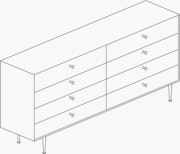
Nelson Thin Edge Double Dresser
- Height (in): 28¾
- Width (in): 67
- Depth (in): 18½
- Weight (lbs): 200
- #of Drawers: 8
- Walnut, white ash or santos palisander veneer outer panels
- Solid birch drawers
- Polished aluminum or powder-coated pulls
- Polished aluminum legs with leveling floor glides

George Nelson
Possessing one of the most inventive minds of the 20th century, George Nelson was the rare person who can envision what isn’t there yet. Nelson felt that designers must be “aware of the consequences of their actions on people and society and thus cultivate a broad base of knowledge and understanding.”
More on George NelsonThis product can expose you to chemicals including formaldehyde, which is known to the State of California to cause cancer or birth defects or other reproductive harm. For more information go to www.P65Warnings.ca.gov.
Care & Maintenance
With regular care and maintenance, your Herman Miller product will provide many years of superior performance and satisfaction. To maintain quality, please follow the cleaning procedures outlined here.The instructions for the care and maintenance of Herman Miller products are provided to you as a service. No warranty is implied since results may vary.
Wood & Veneer
Normal cleaning
Dust regularly with a slightly damp, soft, lint-free cloth. Wipe dry with a dry, soft cloth in the direction of the wood grain.
Once a month
Clean the surface with a soft cloth dampened with a quality cleaner formulated for wood furniture. Wipe the surface in the direction of the wood grain to remove dirt and fingerprints. Wipe dry with a clean, dry cloth.
Twice a year
Apply a good quality furniture polish with a soft cloth.
Do not use aerosol-powered cleaners or polishes. Also, do not use polishes containing waxes or abrasives, or polishes that are oil based.
Stains
To reduce the risk of damage, take some precautions:
- Use coasters for glasses and mugs.
- If a glass top is added to the veneer surface, be sure it rests on felt pads.
- Don’t place a potted plant on a veneer surface unless it’s in a water-tight container or in a drip tray.
Rub the surface lightly in the direction of the wood grain using No. 000 steel wool. Apply a scratch-removing polish with a color and value that simulate the veneer. If the scratches are deep, consult a professional furniture refinisher. Other Damage
Objects should be lifted instead of dragged across a surface. Protective pads should be used under items with a rough bottom, like pottery.
Sunlight can damage veneer as well, so veneer surfaces should not be in direct sunlight.
In addition to light, extremely high or low humidity is a damaging environmental factor. Herman Miller suggests maintaining a relative humidity of 35-65 percent.
Coated Metal
Normal cleaning
Wash coated metal surfaces with a soft cloth soaked in detergent and warm water; rinse thoroughly and dry. Remove scuff marks from low-gloss coatings with pre-softened paste wax, following the instructions on the label. Remove scuff marks and scratches from high-gloss coatings using automotive polishing compounds, either liquid or paste. After polishing, apply a pre-softened automotive paste wax to restore original sheen.
Do not use abrasive, acid, alcohol–based, or solvent–based cleaners; they may damage the paint finish.
Polished Aluminum
Normal cleaning
Apply a pre-softened paste wax to polished aluminum components following the instructions on the label.
In humid atmospheres near salt water, apply the wax once a month. In other areas, apply wax every three months to maintain the appearance of the aluminum.










